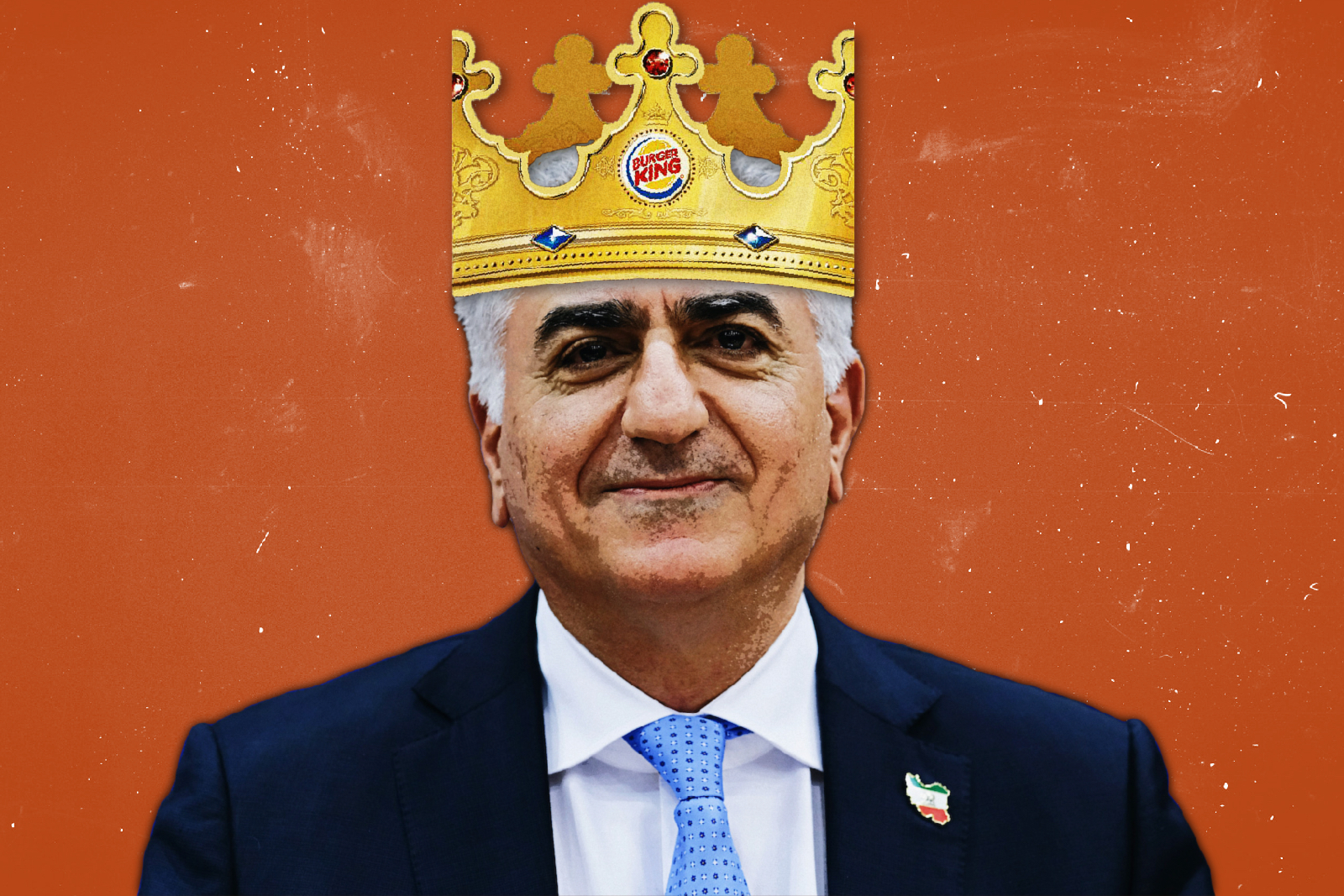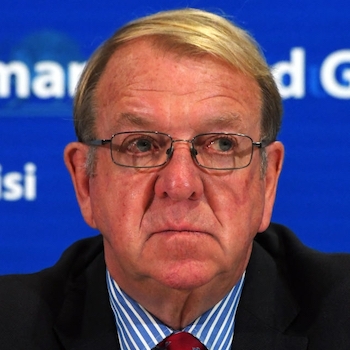
Reza Pahlavi – The Man Who Would Be King
Following his father’s death in 1980, Reza Pahlavi, son of the last Shah of Iran, declared himself the new king of Iran. At the age of 63, he has adopted the mantle of ‘King of Kings,’ the grand title his father assumed before he was driven into exile by the Iranian people.
Virtually invisible for the past 44 years since the 1979 revolution that ended his father’s brutal dictatorship, Reza Pahlavi has suddenly re-emerged into public view, his nostrils no doubt twitching at the smell of a new revolution in the air. The nationwide uprising in Iran, now into its eighth month, is increasingly pointing towards the downfall of the fascist theocratic regime and despite having played no role in opposition to the mullahs, Pahlavi clearly has visions of a return to the peacock throne.
Reza Pahlavi’s attempts to resuscitate the Iranian monarchy have been depressingly predictable. Having fled into exile when his father was deposed in 1979, Pahlavi has lived a life of great wealth and luxury ever since, although he has never been entirely transparent on the source of his fortune. Pahlavi has never been able to assemble supporters of the monarchy in exile and form a cohesive group or organization, underlining the fact that the monarchy is a spent force that belongs in the past and has nothing to offer for the future of Iran.
His sudden re-emergence in January this year, when he was joined by five Iranian celebrities –a journalist, an actress, and a former soccer player among them – quickly fizzled out, despite a massive publicity campaign, when the group encountered overwhelming apathy from the Iranian people, with some protesters even chanting: “Down with the oppressor, be it the Shah or the Supreme Leader” and “No to the crown – no to the turban.” One by one, since the beginning of March, the celebrities, who had formed an alliance with Pahlavi, have disappeared from view, with one openly criticizing attempts by the so-called ‘King’ to force his views on everyone.
Iranians are appalled that Reza Pahlavi has consistently refused to distance himself from his father’s one-party dictatorship and has in fact actively endorsed and glorified it. He has even referred to the 1979 revolution as sedition, and he claims that the monarchists are the only true patriots, which the Iranian people view as profoundly insulting.
Undeterred by being snubbed during a visit to the European Parliament in March, Pahlavi set out on a grand tour of Israel in April, providing great ammunition for the mullahs who were able to crow that their downfall was being plotted by the arch-enemies of the Islamic Republic, Israel, and America, who seek to overthrow the mullahs and restore the despotic monarchy. The mullahs are exploiting Reza Pahlavi as a useful idiot, serving their propaganda machine, and causing many young protesters to reconsider risking their lives by participating in anti-regime demonstrations, if the apparent outcome is simply to restore the son of the Shah who was overthrown by their parents.
On April 29, a rally was organized in London to demand the designation of the Islamic Revolutionary Guards Corps (IRGC) as a terrorist group. The rally broke down into chaos as a few of Pahlavi’s associates attempted to co-opt the rally as a show of support for him, which was rapidly rebuffed by the participants.
The self-proclaimed ‘King’ has inflamed hostility in Iran by stating his would-be support for the IRGC, where he has said: “I am in bilateral contacts with the (regime’s) military, the IRGC, and the Basij. We are communicating. They are signaling their readiness and expressing willingness to align with the people.” It is the warmongering IRGC and their paramilitary Basij who have shot, arrested, tortured, raped, and brutalized opponents of the regime at home and abroad for four decades. They are blacklisted as a foreign terrorist organization in America.
Pahlavi has some serious questions to answer. He must explain why he favours cooperation with the murderous thugs in the IRGC and their Basij militia colleagues. He must explain his position on the mullahs’ development of nuclear weapons in Iran. He must explain why he has always shied away from criticism of his father’s corrupt and brutally despotic regime. He should also clarify why some of his supporters outside a recent conference centre in Munich brandished a placard bearing a large photo of the infamous Parviz Sabeti, former head of the third directorate of SAVAK, the Shah’s notorious secret police, which tortured and executed thousands of Iranians. Sabeti fled Iran together with the deposed Shah and now lives in America.
While the theocratic regime has tried to exploit Pahlavi’s re-emergence to discourage people from joining the protests, the mostly young protesters are not so easily fooled and they have made it abundantly clear that they are not looking to the past, but to the future and to a democratically elected, secular republic.

